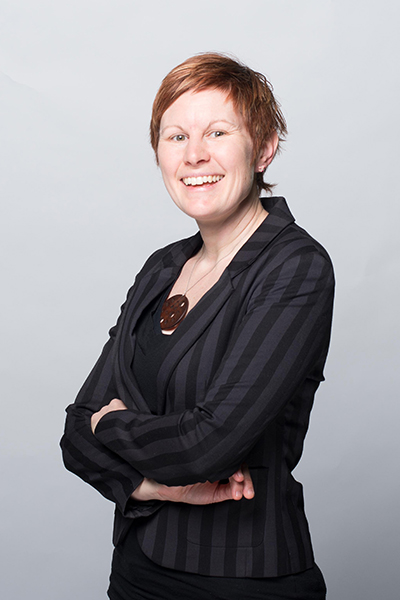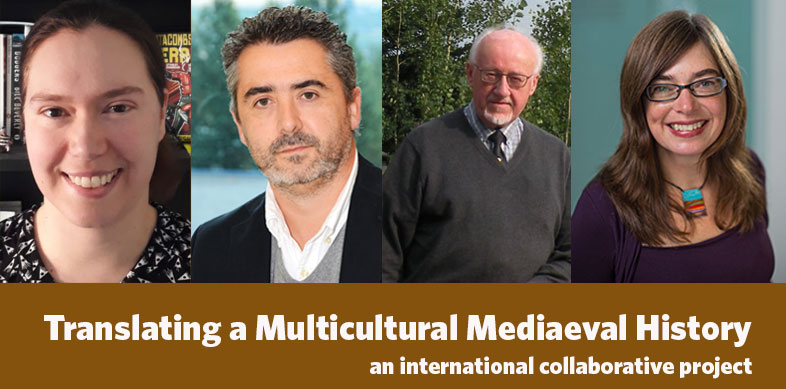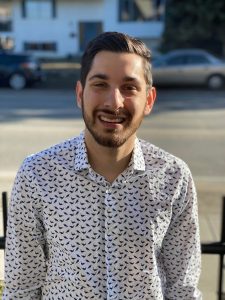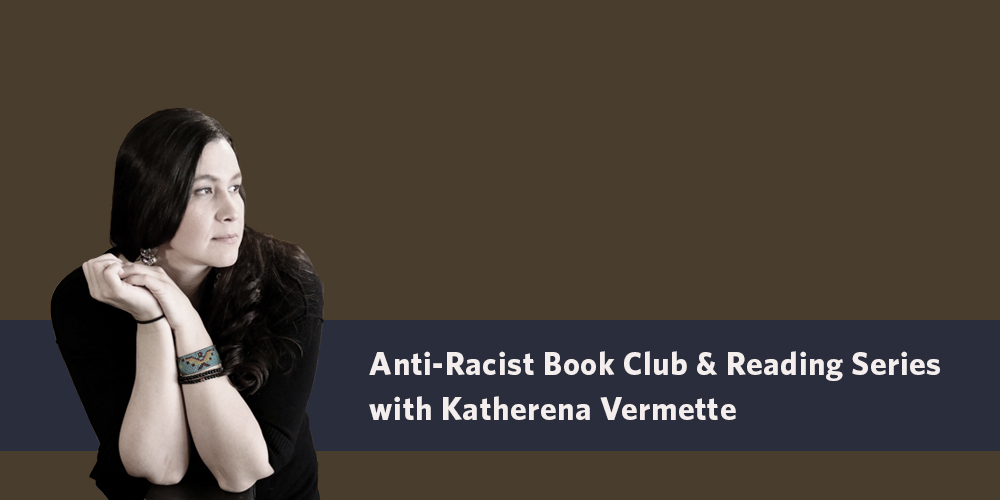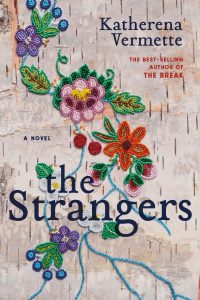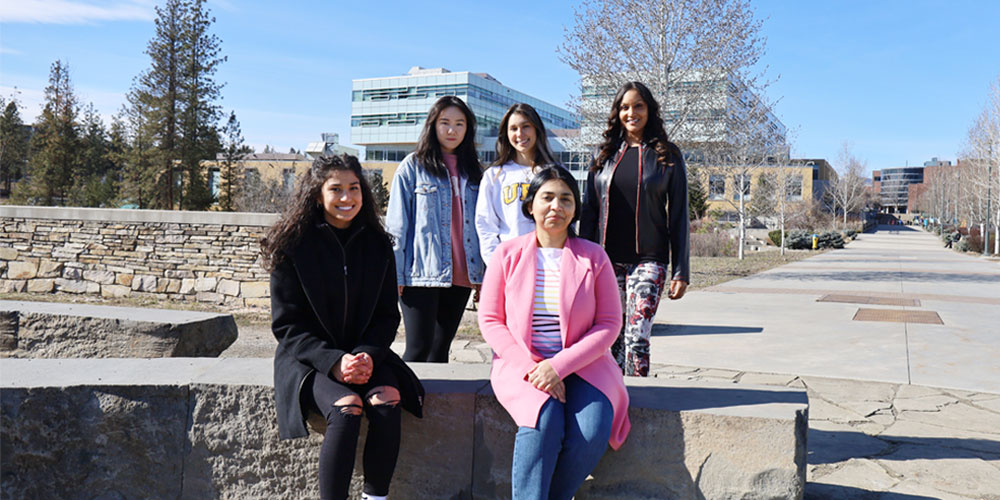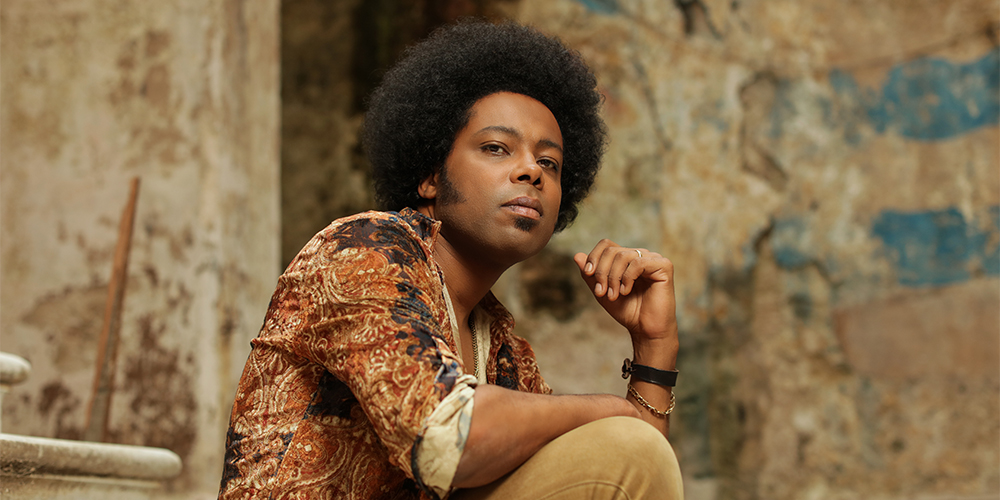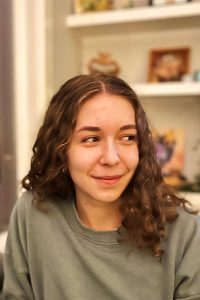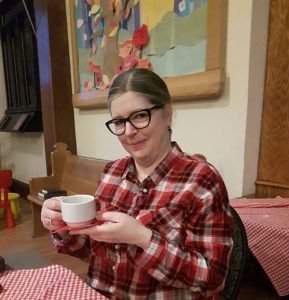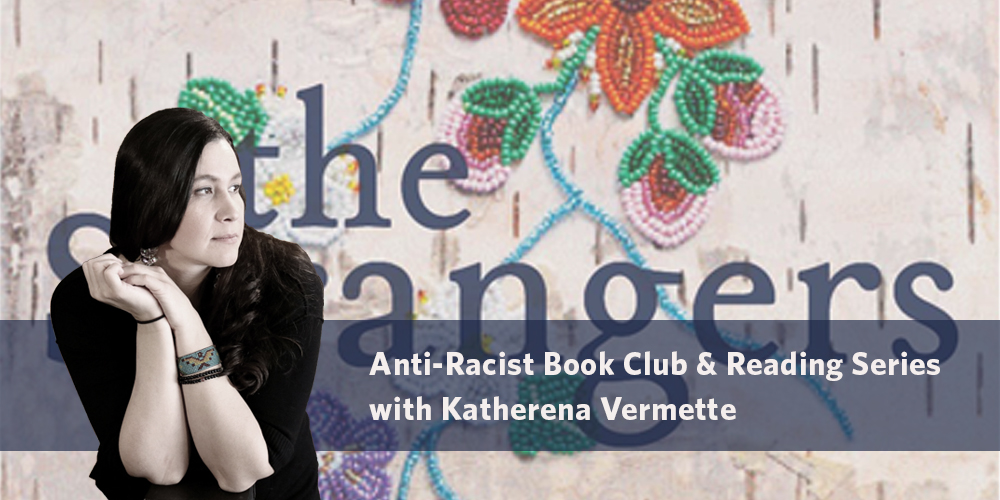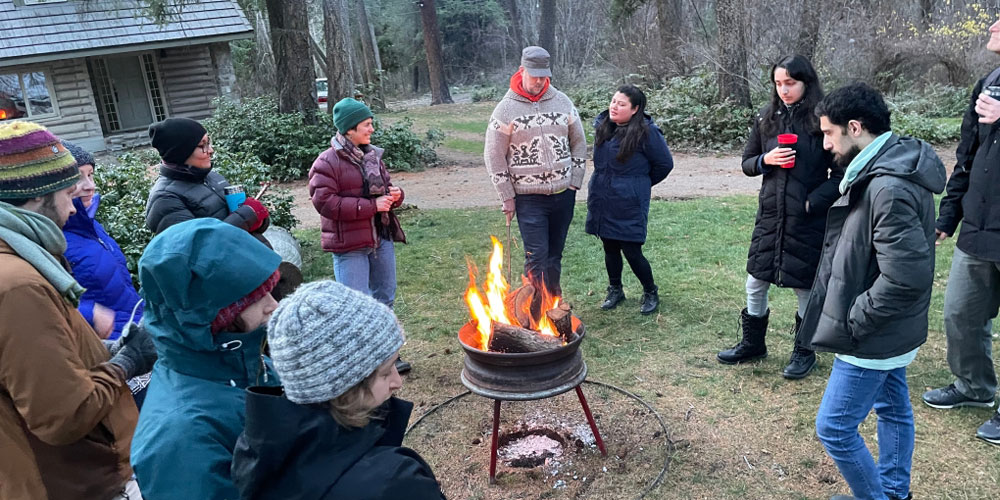
Alongside the Dark event at the Woodhaven Eco Culture Centre
The FEELed Lab is a feminist environmental humanities field research lab with the goal of creating a hub for researchers, students and community members who share common interests in environment and sustainability issues, specifically from feminist, queer, anti-colonial and disability justice perspectives.
“We are interested in sharing ideas related to environment humanities with people who may not always feel part of ‘environmentalism’s’ target audience,” says Astrida Neimanis, director of the FEELed Lab. “We want to make sure that we include diverse voices in the field of environmental humanities which has emerged over the last two decades with a focus on environmentalism’s stereotypical subject – i.e. a white, male, abled, Western, and so on.”
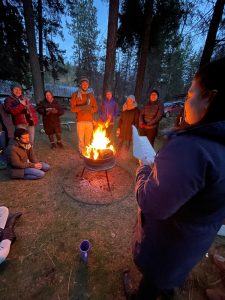
Participants reading at the Alongside the Dark event
To date, the FEELed Lab has organized and hosted a series of events, such as the Littoral Listening sessions and Fringe Natures outdoor gatherings. Neimanis sees herself as a facilitator, creating both physical and virtual community space to gather people together so they can then pursue their own interests related to the field of feminist environmental humanities. She is also a Canada Research Chair in Feminist Environmental Humanities at UBC Okanagan, and an Associate Professor cross-appointed in FCCS in the Department of English and Cultural Studies, and in FASS in the Department of Community, Culture and Global Studies.
“We are very much interested in grounding this research in Kelowna, in the Okanagan watershed,” Neimanis explains. “We recognize we are on unceded Syilx lands, and we want to be accountable to that. We are interested in what situated research looks like, and building relationships with the human and more-than-human communities that we live with.”
‘The FEELed Lab is where the FEELed Lab does’
As a Canada Research Chair, Neimanis will work to build a research community in Canada related to feminist environmental humanities.
“The FEELed Lab is a strong hub for research here in our local area, but can also serve as a scaffold to maintain international collaborations,” says Neimanis.
She notes that her research already involves international collaborations, so keeping those connections through inviting researchers here whether in person or virtually, organizing exchanges, and sharing info through her networks will be a benefit for the lab community. It can serve as a resource for both local researchers, and those who are not from this area.
Madeline Donald and Dani Pierson work alongside Dr. Neimanis, forming the FEELed Lab team.
Dani Pierson, an undergraduate student majoring in Gender, Women and Sexuality Studies and minoring in Cultural Studies, is the lab administrator. Her previous education in arts and entertainment management made her the perfect candidate for this position, doing the behind the scenes work with administrative tasks, web site and social media, the creation of the lab newsletter and blog content management.
“I found out about this project and this position for the lab while in Dr. Neimanis’ Gender and Women Studies course last term,” Dani explains. “I was intrigued by Dr. Neimanis’ approach to dealing with environmental humanities issues, which is not based within a ‘doom and gloom’ lens.”
The FEELed Lab was presented as a very curious and welcoming place, which Pierson says was very refreshing as a student, and a young Metis-Cree-Dane-zaa woman who is trying to feel hopeful about our ability to repair relations with our world.
Madeline Donald is a FEELed Lab Research Associate, working to support the events and projects. As a PhD student, Donald was actively seeking out people to collaborate with when Dr. Neimanis arrived at UBCO in the winter of 2021, and was pleased to discover mutual interests with Astrida. Donald is in the Interdisciplinary Graduate Studies program in the Sustainability theme. Her research is grounded in relational research methodologies, saturated by the riparian habitats of the Okanagan watershed, and rooted in the same values that uphold the FEEled Lab
“There is a deep curiosity and respect for the place in which we do our research. We work to understand our own deferring obligations and relationships to those places as settlers, indigenous researchers, and people of different genders and cultural backgrounds,” Donald says.
Events are a big part of what the FEELed Lab has been offering over the last number of months. The Littoral Listening sessions are held once a month in a virtual environment and are organized like a reading group, but the reading happens with everyone present.
“This is a chance to practice listening, attunement, and sharing ideas,” Donald explains. “We do short readings in these small groups so everyone has a chance to listen and share ideas.”
Neimanis adds that for each session, readings are chosen around a theme that is relevant to our work. The first session last fall was on the theme “in case you want to save the planet” (named for a poem that they recited together on the walk). This month the theme was “We”, and March will feature readings on sex ecologies.
The Fringe Natures events are also planned once a month – these are gentle, Covid-safe outdoor events, where participants can come together in person with various accessibility options.
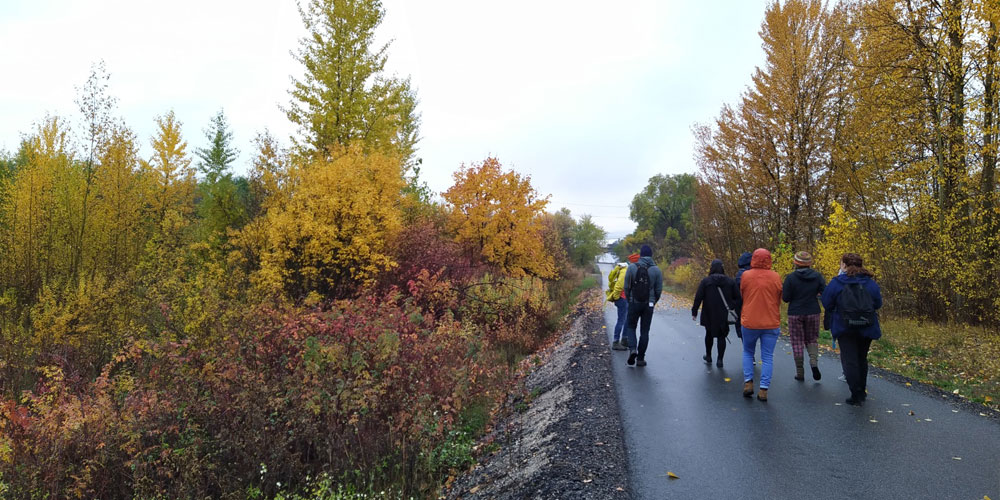
Fringe Natures walk along the Rail Trail, November 2021
“These events are a place to meet others who may have similar interests in building a research community, but they also highlight feminist, anti-colonial, queer and disability related issues around environmental sustainability,” Neimanis explains.
Several of the events have been at the Woodhaven Eco Culture Centre. There are a number of eco-poetry and other events hosted by FCCS that have happened there over the years, and the FEELed Lab is working to make Woodhaven a more lively and accessible space.
Future plans for the lab include creating a bigger presence on the blog for undergraduate student research, co-hosting a symposium this spring called Fire and Water that will include arts-based presentations, workshops and discussions around issues of fire and water in the Okanagan, and creating education-based workshops preparing students to do research in and with place. The lab is committed to doing all of this work, recognizing importance of working with the Syilx Okanagan people and organizations.
For more information and to get involved in the FEELed lab, visit thefeeledlab.ca.

Friday Funday walk through the Woodhaven Regional Park, October 2021
